The views expressed in our content reflect individual perspectives and do not represent the authoritative views of the Baha'i Faith.
Over the past month many friends and colleagues have expressed feelings of anxiety, frustration, disillusionment, despondency and impotence in the face of what they perceive as a world run amok.
The looming specter of another war in Europe as the fate of Ukraine hangs in the balance, threatening to suck many a reluctant nation into its vortex; the evidences of senseless brutality repeatedly displayed by terrorist groups ranging from ISIL in the Middle East to Boko Haram in West Africa; the resurgent financial problems in the Eurozone that stand to endanger the economic well-being of economies far and wide; the warnings of impending environmental disaster for a world in the grips of climate change; only represent a few of the seemingly intractable multiple global challenges that threaten to engulf us.
Yet, in the face of such depressing realities, I find that unlike many of my friends, I am optimistic about the future of humanity and eager to play my part towards making it a bright one. The reason, I realize, comes from the unique perspective offered me by the Baha’i teachings. On the one hand, they remind me to stay alert and focus on what needs to be done:
Be anxiously concerned with the needs of the age ye live in, and center your deliberations on its exigencies and requirements. – Baha’u’llah, Gleanings from the Writings of Baha’u’llah, p. 213.
On the other hand, the Baha’i teachings help me understand what is happening today–and why. They liken the history of the human family to the life of a person. Just as the individual goes through stages of infancy, childhood and adolescence so, too, has the human race passed through stages of growth marked by ever-widening circles of loyalty to clan, tribe, city-state and nation. Our world’s problems occur, not because human nature causes us to behave this way, but because we collectively find ourselves in the throes of a turbulent human adolescence.
The good news? This stage presages the coming of a collective adulthood, in which our many destructive habits will give way to more mature behavior, leading to a peaceful and serene existence. However, we can only make this collective maturity possible once we truly understand our deep interconnectedness:
In every Dispensation, the light of Divine Guidance has been focused upon one central theme… In this wondrous Revelation, this glorious century, the foundation of the Faith of God and the distinguishing feature of His Law is the consciousness of the Oneness of Mankind. – Abdu’l-Baha, quoted by Shoghi Effendi, The Promised Day is Come, p. 119.
The miracles of modern communication–including the internet, social media, television, e-mail, smartphones, the ease with which we can travel from one end of the earth to the other, and our inextricable trade and financial ties–have now made such interconnectedness and oneness possible. Beyond that, they have united our interests as seemingly separate peoples and nations.
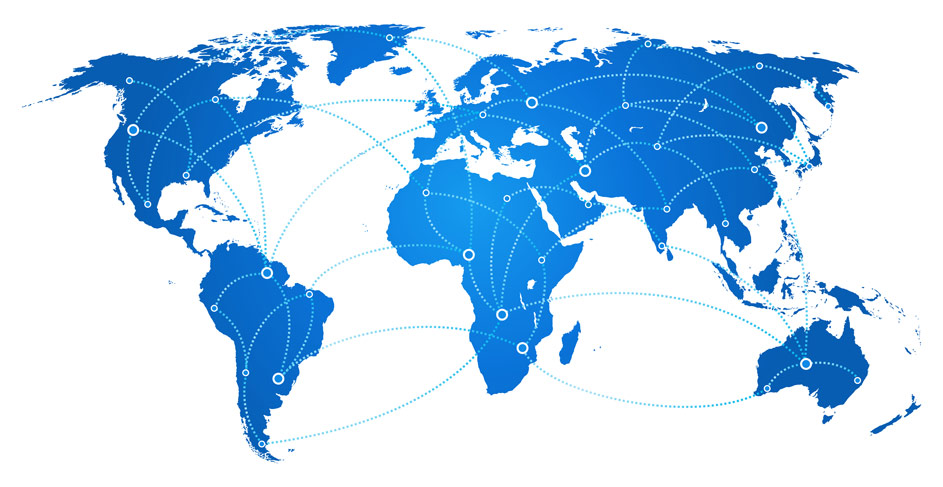 Once we grasp the reality that we can only resolve our gravest collective problems through collective solutions, we can take the next step towards maturity by beginning the process of creating the worldwide decision-making institutions that can act in the interests of all peoples and nations to solve our global problems. Building such a global infrastructure will deepen our unity and ultimately guarantee the peace and environmental survival of our planet.
Once we grasp the reality that we can only resolve our gravest collective problems through collective solutions, we can take the next step towards maturity by beginning the process of creating the worldwide decision-making institutions that can act in the interests of all peoples and nations to solve our global problems. Building such a global infrastructure will deepen our unity and ultimately guarantee the peace and environmental survival of our planet.
In anticipation of this crying need, during an epoch-making visit he made to the United States just over a century ago, Abdu’l-Baha gave this striking and illuminating advice to a congressman who sought his counsel regarding how he could best serve his government and people:
You can best serve your country if you strive, in your capacity as a citizen of the world, to assist in the eventual application of the principle of federalism, underlying the government of your own country, to the relationships now existing between the peoples and nations of the world. – quoted in Shoghi Effendi’s The Advent of Divine Justice, p. 87.
Interestingly, in the fall of 2011, almost 100 years later, an article appeared in the American press, reporting that an official of a European Central Bank had visited his counterparts in the United States to seek advice about dealing with the financial crisis in the Eurozone. The article reported that his American hosts presented him with a copy of the 1781 American articles of confederation, the precursor to the 1789 Constitution. They told him that America had once been a loose confederation of states facing severe financial problems similar to the ones plaguing Europe. America had solved her debt problems by deepening the ties of unity between the thirteen states and forging a federated union. They suggested that Europe seriously consider doing the same as a solution to her financial problems
In short, given that the gravest crises facing humanity today are global and collective in nature, it stands to reason that the solutions must also be crafted collectively. Yet, we lack the requisite infrastructure in the form of such collective decision-making institutions. Having tried so many other solutions to no avail, shouldn’t we give this solution a chance?
You May Also Like
Comments



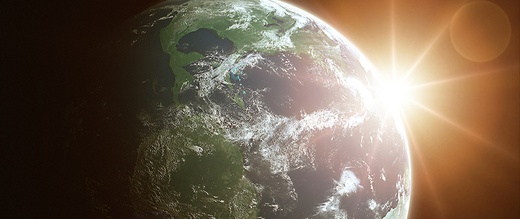




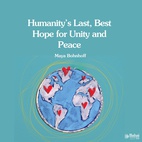

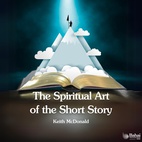


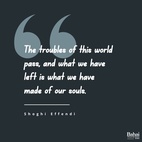



My one caveat about the article concerns this statement: "Our world’s problems occur, not because human nature causes us to behave this way, but because we collectively find ourselves in ...the throes of a turbulent human adolescence." It is not correct, in my view, to assert that human nature does not cause us to behave this way. The Baha'í Writings and academic research in fields such as psychology are replete with references to humanity's lower nature and the ills engendered by brutality, lust, greed, selfishness, egotism and other undesirable qualities which cause us to behave in ways that are inimical to others. The rampant ills engendered by this lower nature are intrinsic to humanity's adolescence. It is this nature which is partly responsible for wars, genocide, economic inequality, sexual atrocities and other disruptive occurrences. A correct emphasis on broader ethnic, racial, national and other collective factors which undermine the goal of a viable global infrastructure should not exclude due acknowledgement of our lower nature's role in engendering inimical actions.